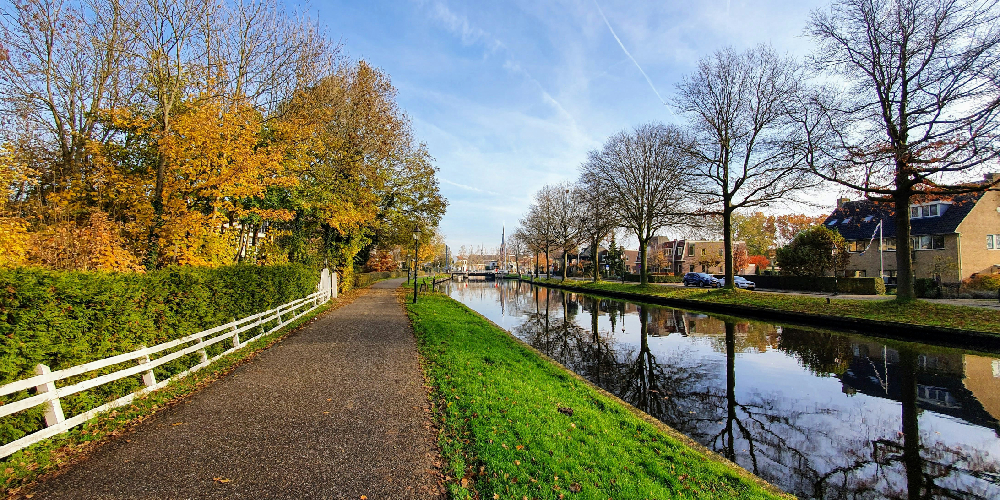Study Destinations

The Netherlands, commonly referred to as Holland, is a country in continental Europe. With a population of around 17.6 million people, it hosts a significant international community. As a founding member of various international and intergovernmental organizations, the Netherlands holds an important and prominent position globally.
The Netherlands is the first country to offer courses in English. Depending on your language skills, you can study in either English or Dutch. Known for their long standing reputation for tolerance and open mindedness, the Dutch ensure you will be welcomed into a warm and diverse environment.
In the Netherlands, higher education institutions are divided into universities of applied sciences and research universities. A university of applied sciences usually provides courses that prepare students for specialized fields, while a research university typically offers broader courses. Both types of universities offer degree classifications that are globally recognized.
The universities in the Netherlands are highly regarded on a global scale. In the 2022 QS World University rankings, 13 Dutch universities (excluding universities of applied sciences) are listed among the top 500. The University of Amsterdam ranks 55th, while Delft University of Technology is the next highest, placed at 57th.
The Netherlands, located in Europe's Low Countries region, is a well-developed and diverse nation. Known for its geography, landscapes, and attractions, it is a popular destination for tourists and international students. Beyond its mainland provinces, the Netherlands includes three special municipalities in the Caribbean: Bonaire, Sint Eustatius, and Saba. It is also one of the few countries with a monarchy, with King Willem-Alexander as the current monarch.
The Netherlands offers much to see and do, with excellent transportation links to neighboring countries, making travel and sightseeing around continental Europe easy and convenient.
In the Netherlands, the cost of studying and living is quite low.
The Euro (€) is the currency of the Netherlands.
The Dutch government subsidizes tuition costs for EU/EEA students, so they pay the same €2,168 per year (as of the 2021/22 academic year) as domestic Dutch students. If you are from outside the EU/EEA, an undergraduate course will cost between €6,000 and €15,000 per year, and a postgraduate course will cost between €8,000 and €20,000 per year. Private higher education institutions charge higher tuition fees, regardless of whether you are an EU/EEA or international student. In the Netherlands, the cost of living varies by location. Larger cities have higher living costs than smaller towns and villages. On average, budget between €500 and €1,500 per month for lodging, travel, food, and other expenses. Many clubs, restaurants, and tourist attractions offer student discounts with a student ID. You can also apply for a CJP discount card or an International Student Identity Card.
If you are from an EU/EEA nation or Switzerland, you do not need a work visa and can work alongside your studies without restrictions. If you are from a non-EU/EEA nation, your employer must provide you with a work permit. With this permit, you can work up to 16 hours per week during the school year and full-time in June, July, and August.
If you do decide to work part-time, you will need to be covered by public health insurance.
If you are an international student interested in studying in the Netherlands, various funding alternatives are available. Tuition loan programs in the Netherlands exist for EU students and those with a nationality or residency status that grants them the same rights as Dutch citizens.
If you are not eligible for a student loan, you may apply for a scholarship or grant. These may be offered by your institution, your home government, or the Dutch government.
While the Netherlands features a centralized application system known as Studielink, not all institutions or courses utilize it.
Typically, your application must demonstrate sufficient financial resources, health insurance coverage (if you are not an EU/EEA citizen), and proficiency in the language of instruction. For specific details, consult the institution where you intend to study.
You may need a visa to live and study in the Netherlands, depending on your country of origin.
If you are from an EU nation, you do not need a visa to study or work in the Netherlands. However, if you are from another nation, you may need a visa to study in the Netherlands. Your institution will handle the visa application process on your behalf. If your institution has obtained a 'knowledge migrant' (a letter of authorization from the Dutch immigration office), you can apply for your entry visa (MVV) at the Dutch embassy or consulate in your country. Additionally, if you are coming from outside the EU, you will need to apply for a residence permit (VVR), which will be valid for the duration of your studies plus three months.

Dutch is the official language of the Netherlands, with three additional co-official languages and five other recognized languages spoken throughout the country. Degrees at Dutch institutions are commonly offered in both Dutch and English. If you wish to study in a language other than your native language, you will likely need to demonstrate your language proficiency. Your institution will determine the required proficiency level, so it is advisable to contact them for specific details. If you do not meet the language requirements, your chosen college may offer language courses to support you. Even if you can study in English, learning Dutch is highly beneficial. It provides an excellent opportunity to interact with locals and fellow students, enhancing your experience in the Netherlands and boosting your CV/resume.
Amsterdam, the capital of the Netherlands, is home to approximately 872,000 people. It serves as the cultural hub of the Netherlands, renowned for its numerous museums, landmarks, vibrant social scene, and nightlife. The city hosts two universities and several other higher education institutions, including a university of applied sciences. Among these institutions are the University of Amsterdam, Vrije Universiteit Amsterdam, Tio University of Applied Sciences, and Amsterdam University of Applied Sciences.
The Hague is a city in the Netherlands (Den Haag)
The Hague, located on the west coast of the Netherlands, is the country's third-largest city, with a population exceeding 500,000 people. It serves as the political center of the Netherlands, housing the Cabinet and the Supreme Court. The Hague is globally recognized as the capital of international law and arbitration.
The Hague hosts several higher education institutions, including research universities and universities of applied sciences. Among them are The Hague University of Applied Sciences, The Hague International Business School, Hotel school The Hague, and Leiden University – The Hague.
Rotterdam, the second largest city in the Netherlands, boasts a population exceeding 600,000 people. It is Europe's largest seaport and serves as a crucial economic and logistical center. Rotterdam's distinctive architectural landscape reflects its reconstruction following near total destruction during World War II. The city is home to several higher education institutions, including Erasmus University, Rotterdam University of Applied Sciences, and Inholland University of Applied Sciences.